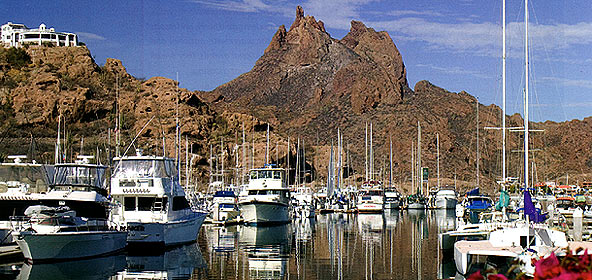When Spanish explorers first arrived in Mexico in 1519, an estimated 10 million Indian inhabitants were already living in this country. Their civilization was over 3,000 years old and a force to be reckoned with. The Spanish quickly realized that it couldn’t be swept aside. So they built their Colonial empire upon the existing Indian culture. Which is why Mexico’s past wasn’t erased. Instead, the Indian culture merged with Spain’s. The result is that there are over 20 million Native Mexicans here, speaking nearly 60 languages and dialects. And they are all descendants of these ancient civilizations.
In the following we would like to present you with a few places you have to visit in Mexico City if you want to gt to know the long history of this marvellous country.
The Museo Templo Mayor is one of the places you can’t miss when in Mexico City. The Templo Mayor was discovered in the mid 1900s underneath the city and it represents the most important religious area for the Aztecs. The temple is part of the pre-Hispanic capital Tenochtitlan which was destroyed by the Spanish conquerors. Archeologists are up to this day unearthing artifacts and structures at this historical site located under the Mexico City Metropolitan Cathedral in the Zocalo.
Visitors can view sections of the two main religious temples (dedicated to the god of war and rain god), pyramids, serpent carvings, and shrines. The structures are open to the public along with the Templo Mayor Museum that houses many of the era’s artifacts. The historic complex of the Templo Mayor and its museum are part of UNESCO’s World Heritage Site.
Another UNESCO World Heritage site in the Mexico City region is Teotihuacán, The Place of the Gods, which contains some of the largest pre-Columbian pyramids in all of Mexico. Experts do not know to what ethnic group the people of Teotihuacan belonged, nor what language they spoke. For this reason they are called Teotihuacanos.
The name of the site, which means “place of the gods,” comes from the Aztecs. By the time of the Aztec civilization, Teotihuacan had already been abandoned for hundreds of years, but the Aztecs considered it a sacred place full of myths and legends.The site contains many popular constructions, including the Palace of the Plumed Butterfly and the Pyramid of the Sun, which sits at the heart of the small city, as well as The Pyramid of the Moon, the Temple of Quetzalcoatl and the Palace of Quetzalpapalotl.The nearby museum, Museo del Sitio, holds many artifacts from the period.
Located within the famous Chapultepec Forest, the Museo Nacional de Antropología (National Museum of Anthropology) holds artifacts from Mexico’s pre-Columbian epochs, including the famous Piedra del Sol, the famous Aztec Calendar Stone, as well as the famed 16th-century statue of Xochipilli, the Aztec god of art, games, beauty, dance, and maize (among others). Each of the salons displays artifacts from a particular geographic region or culture. The Mesoamerican cultures displayed include: Teotihuacan, Toltec, Aztec, Mixtec, Zapotec, Olmec, and Maya.
Be sure to see the Aztec Calendar, Piedra del Sol (Stone of the Sun), which shares similar aspects to the Mayan Calendar. The 12-foot, 25-ton, carved basalt slab, dating to the late 1400s, was discovered buried beneath the Zocalo. Other highlights include the reconstruction of an eighth century Mayan tomb and perfectly preserved skeleton, a replica model of the Templo Mayor, a copy of Aztec ruler Moctezuma’s feathered headdress and massive Olmec heads.
Like Our Articles?
Then make sure to check out our Bookstore... we have titles packed full of premium offshore intel. Instant Download - Print off for your private library before the government demands we take these down!






